Life After Cyclone Idai
See how Malawians were able to rebuild their homes after they were washed away
Throughout 2019, families around the world saw their homes crumble to powerful earthquakes and wash away to cyclones and severe floods. Many had to abandon their homes in search of safer grounds, away from life-threatening conflict.
Your ongoing support in 2019 meant that people who lost their homes to disasters have received essential emergency aid.
Items like tools and tarpaulins helped build shelters and bring families together again. Mosquito nets and water filters helped mothers protect their children from vector and water-borne diseases.
So far this year, we have responded 11 times (7 natural disasters and 4 conflicts) and provided more than 145 thousand people across 11 countries with emergency shelter and life-saving aid items.
Somaliland | Ongoing Severe Drought
Bangladesh and Paraguay | Flooding
The Philippines | Tropical Storm Usman
Ethiopia, Cameroon, Iraq, Nigeria, Niger, and Syria | Conflict
More than 29,000 families were supported with emergency shelter and other essential household items, including tents, tarpaulins, tool kits, blankets, mosquito nets, solar lights, cooking sets, water carriers and water filters.
Have a look at some of the things that your support has helped families achieve this year.
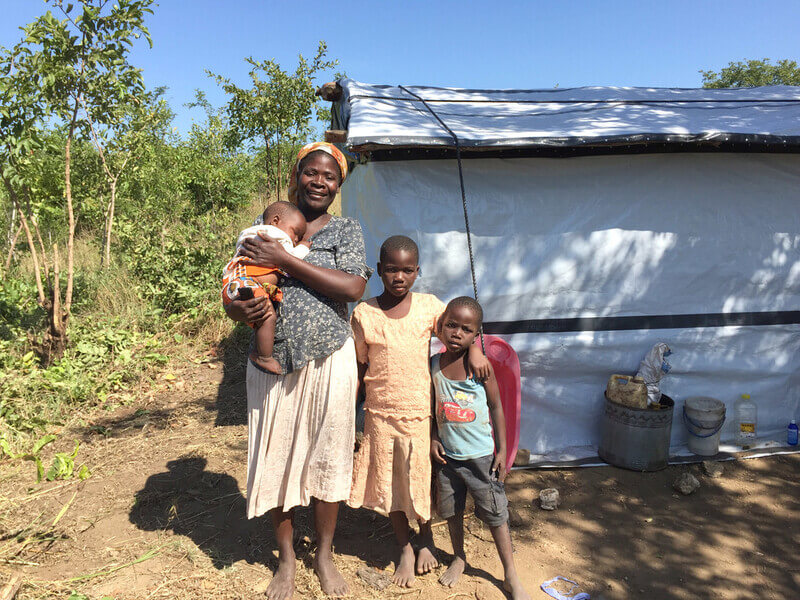
A home is more than a physical structure. It’s a place to spend time with family, to get a good night’s sleep, to play, to work, to feel safe and secure. It’s a place to find privacy and time to yourself. For the people we support, it’s a place with a future.
Your support has been vital for families like Grace’s in Malawi. The family lost their home and all their belongings after Cyclone Idai swept through their village, Mwalija.
Grace received a shelter kit and other essential aid items including a tarpaulin, mosquito net, a hoe, and a kitchen set. She used the tool kit and tarpaulin to build a new shelter for her family, allowing space for everyday life to resume. Grace said:
We were very happy to now have our own place to stay. It means that my husband and I can live together as man and wife again.
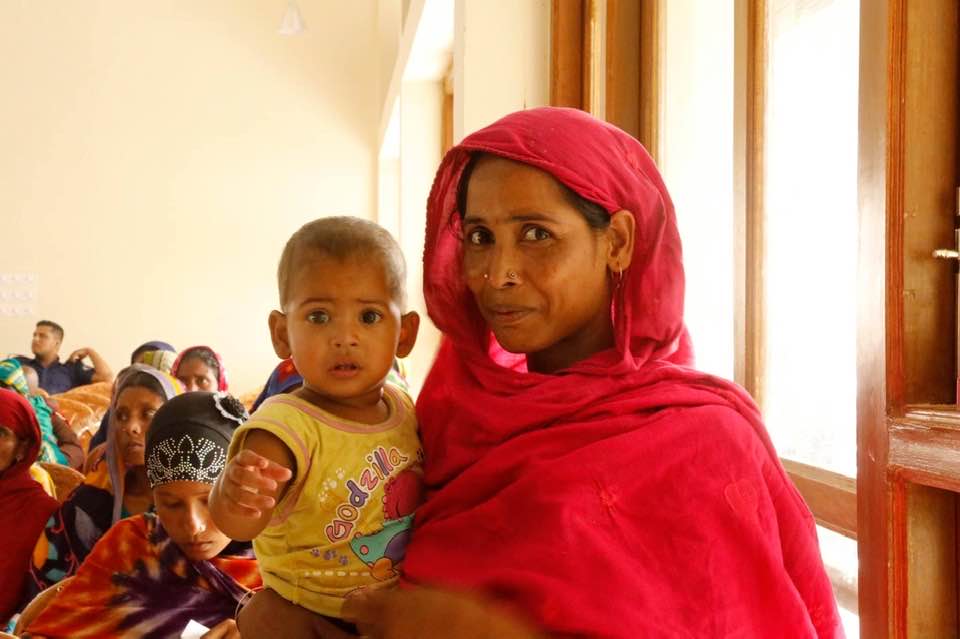
By reaching people rapidly after a disaster and listening to what they need, we can help communities stay together. That means people are more likely to be able to access schools, hospitals and other essential services – and it means people can be there for each other as they focus on the future together.
In Bangladesh, your support helped families who lost their homes to severe monsoon flooding. Working together with the Bangladesh Red Crescent Society, we carried training sessions with community members who learnt how to use the tarpaulins and tool kits to build a shelter. Those community members then trained the rest of the community, making sure that every family that received aid was trained on how to fix their home using the tools provided.
In Malawi where families were living in schools, teachers reported that by helping people return home schooling activities improved.
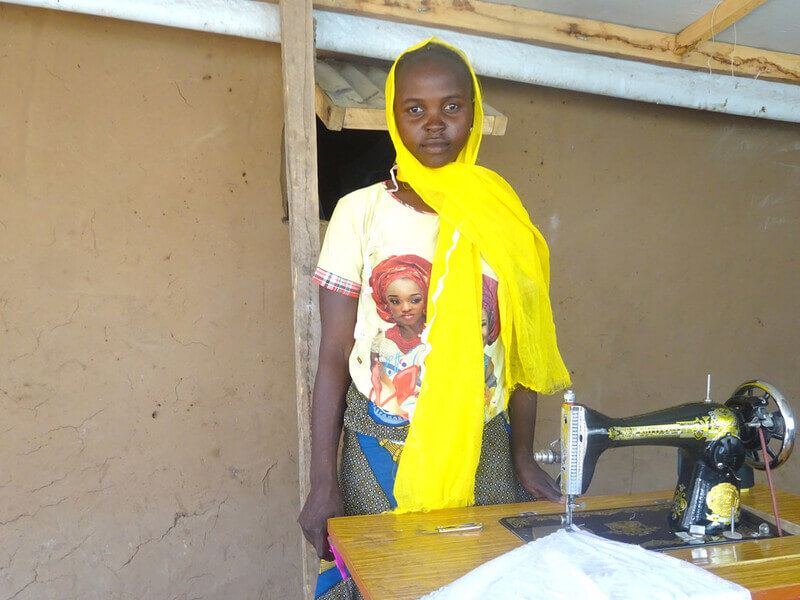
When you have a place to call home, earning a living seems possible again. We often help people settle close to places where they can tend crops or keep livestock, and we provide the tools people need to succeed. Homes often double up as shops or workshops too – as communities rebuild and return to normality together.
That’s what 23-year-old Esther from Nigeria did. After witnessing the horrific murder of her family by Boko Haram, Esther fled to Cameroon. Esther now lives in Minawao camp where we’ve been providing aid items to families through our partner IEDA Relief. Since arriving at the camp with nothing but the clothes on her back, Esther has started her own business as a dressmaker. It hasn’t been an easy journey for Esther, but she can now earn a living of her own and has regained her independence. Esther said:
Anytime I see somebody wearing something that I sewed, it makes me happy. I can now take care of some family needs, like cooking and other things.
In Bangladesh, 77% of people interviewed who had been supported by ShelterBox said the tarpaulins would be useful for sheltering livestock, while 65% planned on using them to dry harvests.
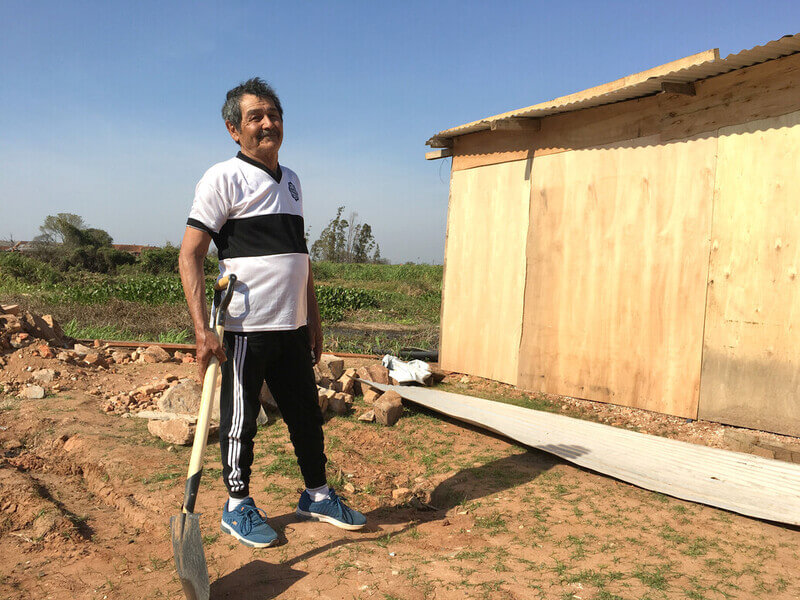
We’re all about lasting change, and that includes training people to build homes that last. By working with communities to showcase both local techniques and construction methods we’ve tested around the world, we can help families to build – and repair – reliable, weatherproof homes. We also train people to pass that knowledge on, so families can continue to benefit for generations to come.
When torrential rains brought severe floods in Paraguay earlier in 2019, Cecilio was one of the people who had to abandon their home in search of higher grounds. He was one of the first to receive ShelterBox aid items and, along with some of his neighbours, he received training on how to repair his home.
When it became safe to return, Cecilio used the hammer and nails to repair his old roof and build the frame for another section of his house. He said:
I paid close attention during the training to ensure that I could make the appropriate repairs to my home, and so that it lasts longer and remains stronger the next time the floods come.
 In Cameroon, 98% of respondents agreed that they felt more confident to use the shelter aid after they received training.
In Cameroon, 98% of respondents agreed that they felt more confident to use the shelter aid after they received training.
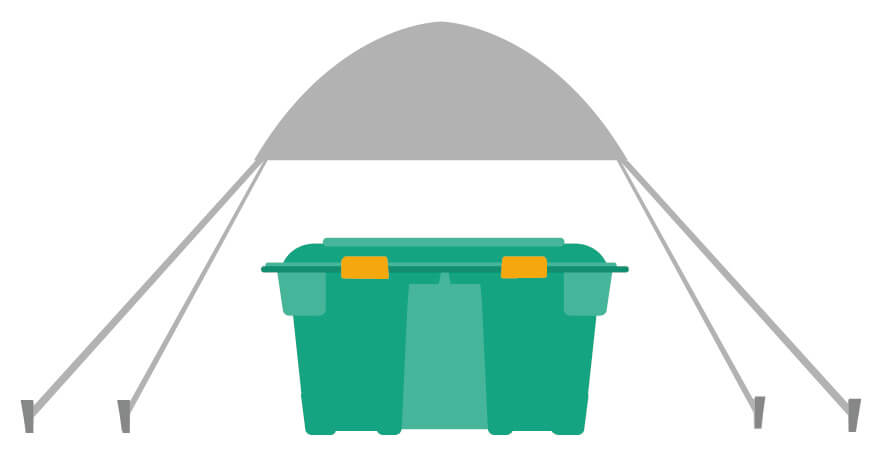 In Minawao camp, Cameroon 100% of respondents agreed that they had improved levels of family privacy after receiving shelter.
In Minawao camp, Cameroon 100% of respondents agreed that they had improved levels of family privacy after receiving shelter.
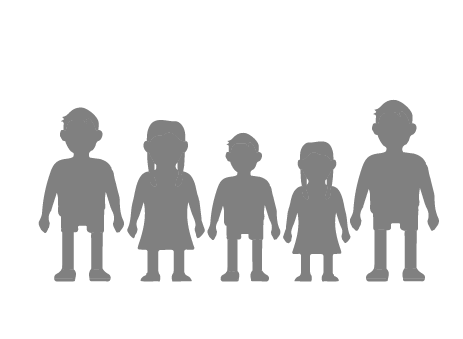 In Malawi where families were living in schools, teachers reported that by helping people return home schooling activities improved.
In Malawi where families were living in schools, teachers reported that by helping people return home schooling activities improved.
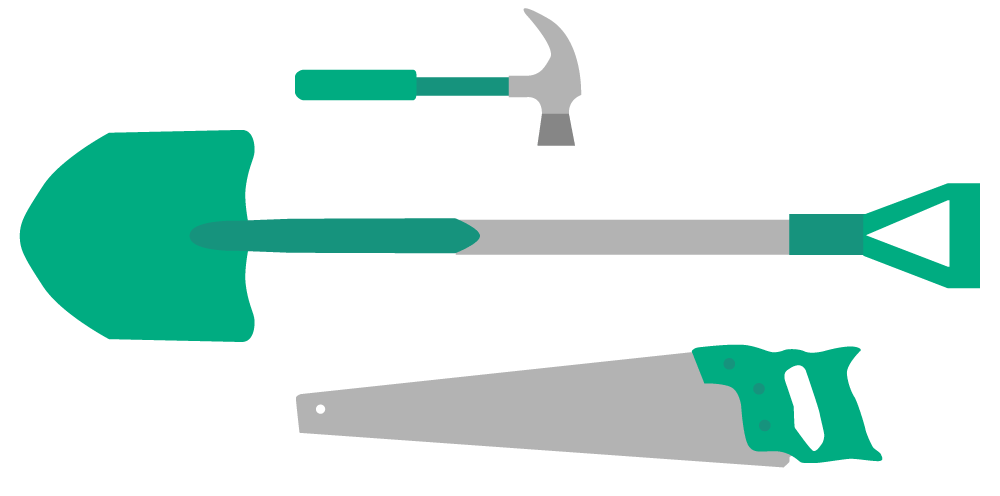
In Bangladesh, 77% of respondents said the tarpaulins would be useful for sheltering livestock, while 65% planned on using them to dry harvests.
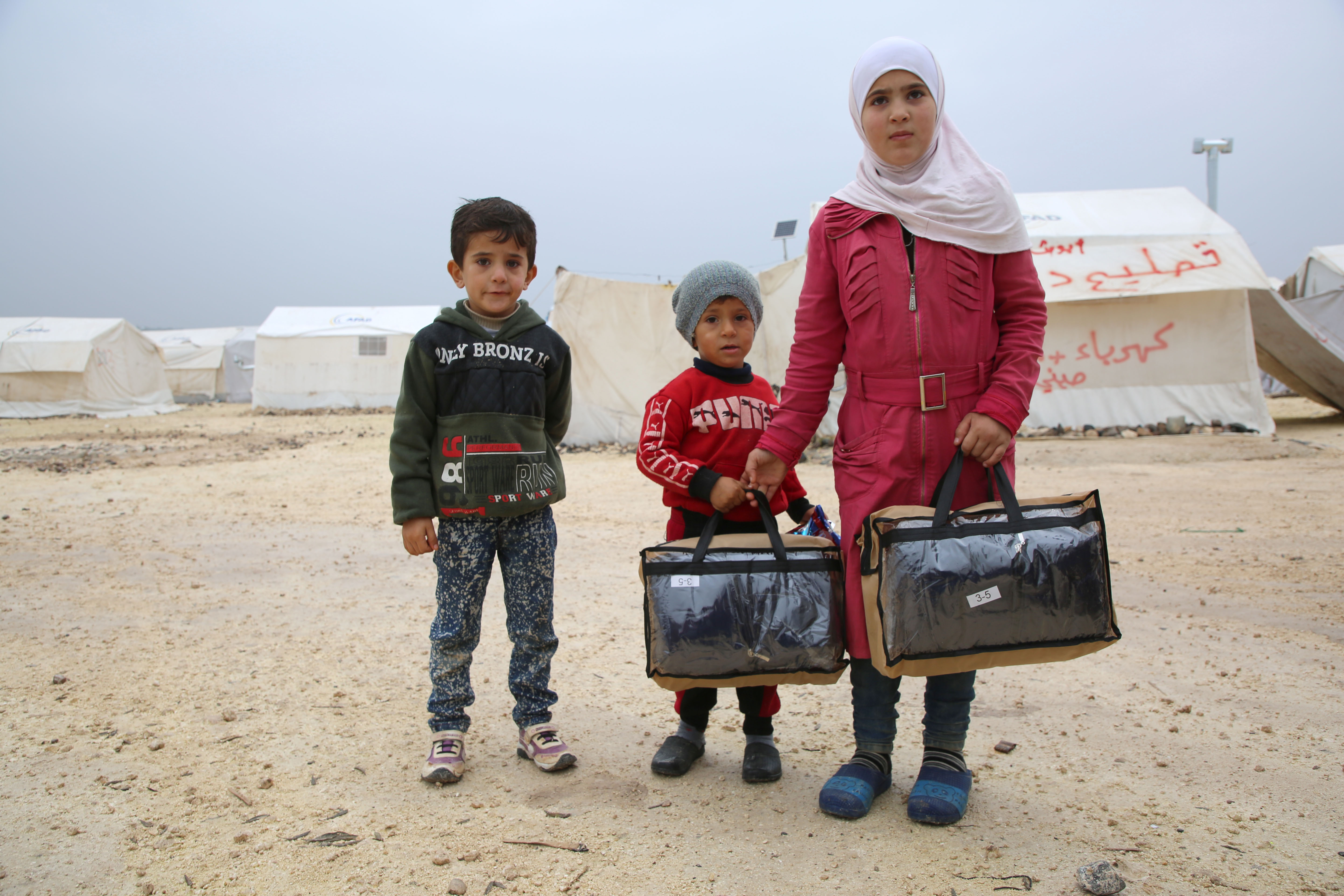
ShelterBox is honored to have been nominated for the 2019 Nobel Peace Prize.
The nomination was a recognition of our humanitarian efforts to help families caught in some of the world’s most extreme conflict zones, including the Syrian crisis, the Lake Chad Basin, and in some of the world’s largest refugee camps like Cox’s Bazaar in Bangladesh.
Our work keeps families together during a time of unprecedented displacement.
This nomination would not have been possible without the dedication and generosity of our supporters, volunteers and partners at home and throughout the rest of the world.
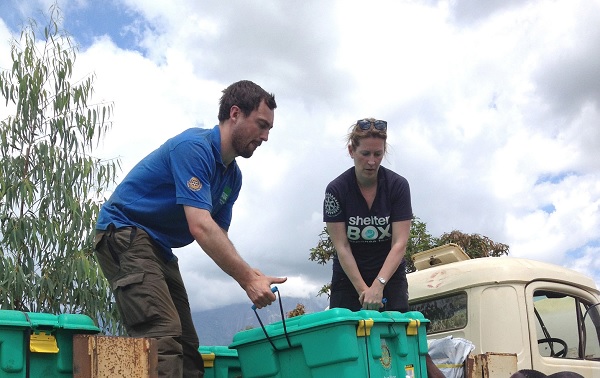
We couldn’t do what we do without the amazing support of our partners and incredible volunteers who go above and beyond to help families who have lost so much.
We are proud to be an official project partner of Rotary International. Local Rotary groups and Rotarian’s around the world have helped families in almost all of our 10 responses to natural disasters.
See how Malawians were able to rebuild their homes after they were washed away
Esther saw her family getting slaughtered by Boko Haram. She escaped, settling in Minawao camp and becoming a seamstress.
Leaving the devastating conflict in Syria in search of a safer place for his family.